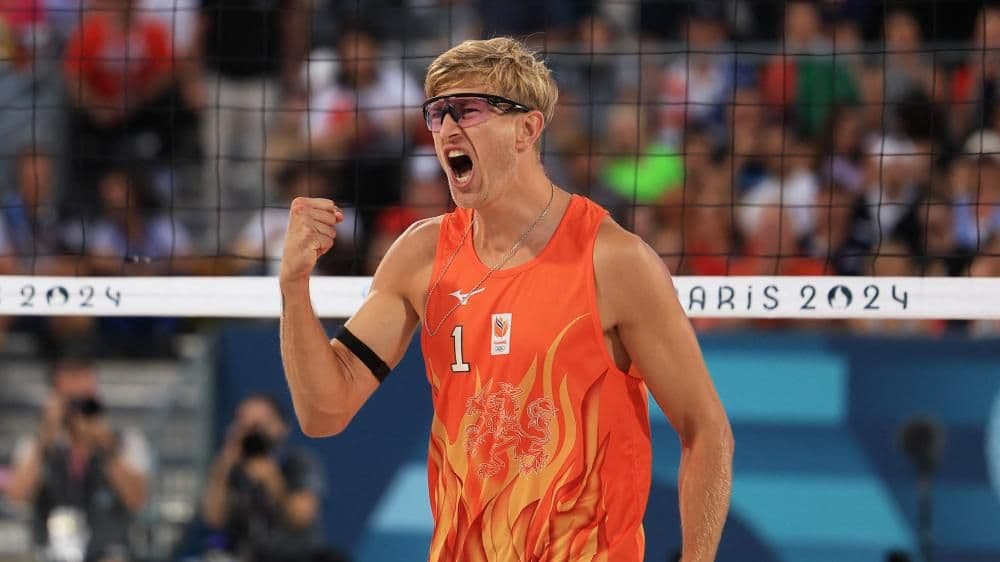We're loading the full news article for you. This includes the article content, images, author information, and related articles.
The decision to deny a visa to Steven van de Velde, a Dutch Olympian convicted of child rape, reignites a global debate on athlete conduct, rehabilitation, and the responsibility of sports federations.

The Australian government has denied a visa to Dutch Olympic beach volleyball player Steven van de Velde, barring him from competing in the upcoming Beach Volleyball World Championships in Adelaide. The decision, confirmed on Tuesday, 28 October 2025, stems from his 2016 conviction in the United Kingdom for the rape of a 12-year-old girl.
Australia's Home Affairs Minister, Tony Burke, stated the government will "continue to use every tool we have available to ensure that Australians can be safe and feel safe in their communities," alluding to the country's robust character test for visa applicants. The move followed a direct appeal from South Australia's Attorney-General, Kyam Maher, who described van de Velde's crimes as "utterly abhorrent" in a letter to the federal government. Maher asserted, "we do not believe that foreign child sex offenders should be granted entry to this country."
In 2014, a 19-year-old van de Velde travelled from the Netherlands to Milton Keynes, UK, to meet a 12-year-old girl he had connected with on Facebook. He was subsequently arrested, extradited to the UK in January 2016, and pleaded guilty to three counts of raping a child under 13 at Aylesbury Crown Court. The court heard he was aware of the girl's age. He was sentenced to four years in prison and placed permanently on the UK's sex offender registry. Van de Velde served 13 months of his sentence before being released in 2017 and resuming his professional volleyball career in 2018.
Van de Velde's return to elite sport has been a source of significant controversy. He competed in the Paris 2024 Olympics, where his participation drew condemnation from child protection advocates and boos from spectators during matches. The Dutch Olympic Committee (NOC*NSF) defended his selection, stating that he had completed a professionally supervised rehabilitation process and that experts considered the risk of reoffending to be nil. The International Olympic Committee (IOC) deferred to the Dutch committee, noting that athlete selection is the responsibility of the respective national body.
The Dutch Volleyball Federation (Nevobo) acknowledged Australia's decision, stating they were aware it was a possibility given the country's strict visa policies. Technical Director Heleen Crielaard said, "We regret this, but we have no choice but to accept the decision." Van de Velde also issued a statement accepting the outcome.
This case highlights the complex intersection of criminal justice, rehabilitation, and sports governance. While many international sports bodies, like FIFA, have safeguarding policies, the authority to bar an athlete often rests with national federations or the immigration laws of host countries. There is no universally enforced policy across all sports regarding athletes with serious criminal convictions.
For Kenya, the incident serves as a point of comparison for its own immigration and sports integrity policies. Kenyan law allows for the denial of entry to individuals who have committed serious crimes, particularly those involving moral turpitude, sexual offenses, or threats to public safety. While Kenyan border officials may not have automatic access to foreign criminal records, an application for an Electronic Travel Authorisation (eTA) requires disclosure of criminal history. A serious conviction like van de Velde's would likely face significant scrutiny.
The case underscores the growing global emphasis on child protection in sports, a movement championed by organizations like the NSPCC's Child Protection in Sport Unit. It prompts questions for Kenyan and East African sports federations about their own codes of conduct and the due diligence performed on athletes, both local and international, who compete in the region. As international sporting events increasingly look to Africa as a host destination, these ethical and legal considerations become paramount to ensuring the safety and integrity of sport.
Keep the conversation in one place—threads here stay linked to the story and in the forums.
Sign in to start a discussion
Start a conversation about this story and keep it linked here.
Other hot threads
E-sports and Gaming Community in Kenya
Active 9 months ago
The Role of Technology in Modern Agriculture (AgriTech)
Active 9 months ago
Popular Recreational Activities Across Counties
Active 9 months ago
Investing in Youth Sports Development Programs
Active 9 months ago